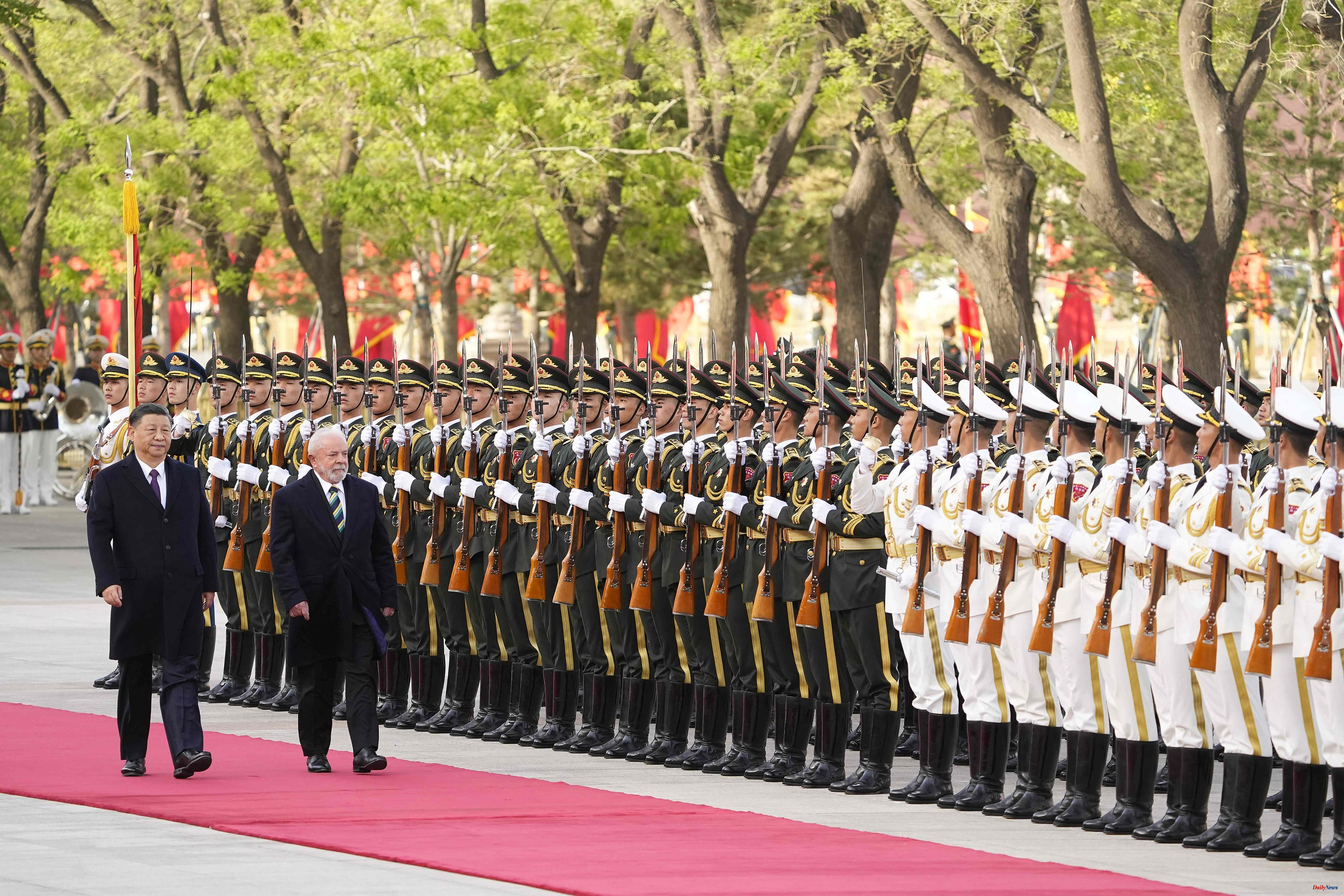It had been a long time since Tiananmen Square had held such a grand welcome ceremony with all the military honors. Trumpeting soldiers playing national anthems; infantry parade, 21-gun salute and flag raising; host and guest strolling in the open air on a long serpentine red carpet.
Xi Jinping, with more power than ever inside and outside his home, has been showing the world for some time an unprecedented diplomatic offensive after three years of confinement locked up in his fortress. His Brazilian counterpart, Lula da Silva, back on the political playing field, intends to relaunch his country on the global stage, as well as recover the reputation lost after four chaotic years with Bolsonaro occupying the Planalto Palace.
In Beijing, they do not have a good memory of Lula's predecessor: following the aggressive rhetoric coined by Donald Trump, former President Jair Bolsonaro was one of the usual scourges of China, which he blamed for the pandemic. But with Lula, who knows Beijing well because he has already traveled twice before during his two terms from 2003 to 2010, everything is different.
After a stop in the financial box in Shanghai, Lula (77 years old) landed in the Chinese capital on Friday to hold a bilateral meeting with Xi Jinping (69 years old) in the Great Hall of the People, the Tiananmen Chamber. "The relations between both parties will play a key role for world stability and peace," Xi told him, according to the Chinese reading of a meeting that lasted almost an hour. "China and Brazil are two of the big developing countries and two important emerging markets. We have common interests and China will give priority to our friendly relations," the Chinese leader continued.
On the table there were two main topics: strengthening economic ties and presenting the shared positions regarding the vision of world news, with special attention to the positions regarding the Russian invasion in Ukraine. The Brazilian and the Chinese share a similar "neutrality" that they have defined as "non-intervention", while they have positioned themselves as possible mediators to achieve an end to the conflict.
"The two leaders agreed that dialogue and negotiations are the only viable way out of the Ukraine crisis," summarizes the Chinese station CCTV. The AP agency highlights that a key piece of Lula's plan is his proposal that Brazil and China can mediate the ceasefire in Ukraine. However, his suggestion that Ukraine cede Crimea as a means to forge peace has infuriated Kiev and its allies.
During his meeting with Lula, the Chinese leader highlighted his Global Security Initiative project, also backed by the aggressor Russia, which is based on "practicing multilateralism" and defends respect for the sovereignty of all countries, but opposes the international sanctions in a scenario of tensions between nations.
Lula's three-day tour in China, after trips to the United States, Argentina and Uruguay, has been accompanied by a large delegation of businessmen, state governors, congressmen and ministers. For the Brazilian president, closer economic relations with Beijing, Brazil's main trading partner, was a crucial issue. Therefore, both leaders signed up to 14 agreements, from agriculture to aeronautics.
One of the agreements they have reached has been to begin carrying out commercial transactions with their own currencies, yuan and real, leaving the US dollar as an intermediary. Lula, like Xi, follows the strategy of trying to curb the dominance of the dollar in international trade, which is why both have called on developing countries to work to replace it with their own currencies.
"Who was the one who decided that the dollar was the currency after the disappearance of the gold standard? Why can't we trade with our own currencies?" Lula said Thursday during the inauguration of former Brazilian president Dilma Rousseff as director of the BRICS bank, which is based in Shanghai, where Lula also visited a research and development center of the Chinese technology company Huawei.
In his tour of Beijing, the Brazilian leader also sought to sign agreements, beyond the traditional exports of iron ore, soybeans, oil and meat, on sustainable development, innovation and technology, such as the construction of the sixth satellite manufactured between both nations, CBERS-6, which will monitor the biomass of the Amazon rainforest. While Xi, always attentive to Brazil, the largest economy in Latin America, and above all to its raw materials, intends to boost the role of Chinese companies in the electricity networks and the extraction of oil and lithium there, in exchange for more infrastructure projects.
According to the criteria of The Trust Project












